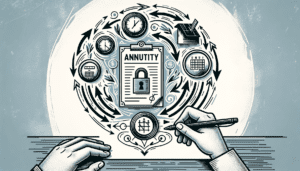What Advisors, Investors Can Expect in Second Half of 2022

Debt servicing costs are near multi-decade lows, in stark contrast with the conditions leading up to the global financial crisis of 2007-2009. Consumer sentiment has declined dramatically, but so far there is a disconnect between what people are saying and what they are doing.
Mortgage rates have surged, creating concerns about the outlook for housing. The 30-year mortgage rate has increased in the past six months by the largest amount in decades, contributing to a slowdown in new and existing home sales. Housing, however, is likely heading for a slowdown rather than a meltdown, given pent-up demand, undersupply and major differences to the backdrop in the 2000s.
In comparison with the housing bubble that formed in the mid-2000s, the subprime home loan market is minimal and home equity lines of credit are a fraction of their size during the housing bubble. And most loans are fixed rate, so homeowners will not face the rate shock that destroyed the market during the global economic crisis.
Continued market volatility is likely, with a tightening Fed, war raging in Ukraine and COVID representing a continuing threat to Chinese growth and global supply chains. The risk of recession is undeniably higher than it was at the start of the year, with the Fed facing the daunting challenge of trying to tighten policy enough to slow demand avoiding tipping the economy into a severe recession.
Alpine Macro’s Chen Zhao recently wrote that “controlling an economy is like taming a wild animal,” a vivid description of the challenge the Fed faces. It is understandable to react with a full range of emotions to the market downturn and to a steady stream of unsettling headlines. Nevertheless, it is important to remember that equity markets typically hit bottom while the economy is still getting worse.
Being patient in this challenging environment is difficult but important. Advisors should consider “harvesting” losses in taxable accounts, creating tax losses that can offset current or future capital gains.
There may be more value and less risk in short-term bonds than in intermediate and long-term bonds. Investments such as real estate and infrastructure may be attractive to income-oriented investors looking for protection against persistent inflation.
Advisors should consider focusing on holdings that may “bend but not break” in times of elevated economic stress. Cash flow, strong balance sheets and pricing power will be highly valued in an uncertain environment. Among struggling growth-oriented investments, companies with a clear path to positive cash flows that don’t need to tap capital markets are likely to be better positioned for this investment environment than more speculative growth names.
Daniel S. Kern is chief investment officer of TFC Financial Management, an independent, fee-only financial advisory firm based in Boston. Prior to joining TFC, Daniel was president and CIO of Advisor Partners. Previously, Daniel was managing director and portfolio manager for Charles Schwab Investment Management, managing asset allocation funds and serving as CFO of the Laudus Funds.
Daniel is a graduate of Brandeis University and earned his MBA in finance from the University of California, Berkeley. He is a CFA charterholder and a former president of the CFA Society of San Francisco. He also sits on the board of trustees for the Green Century Funds.



